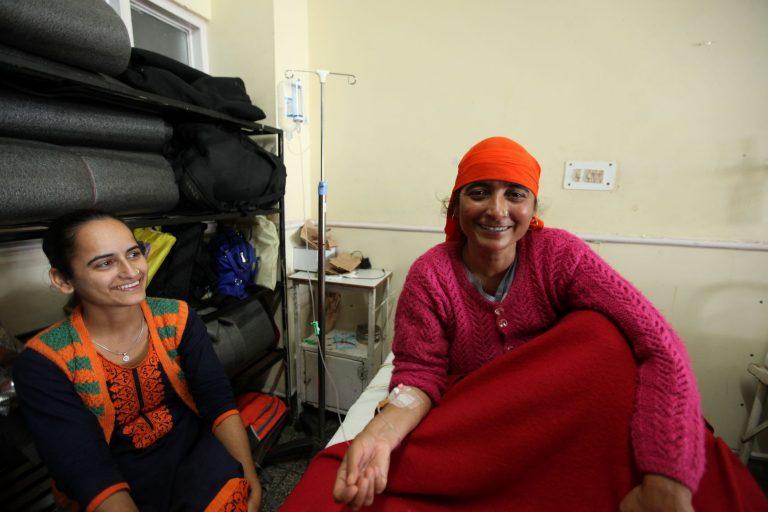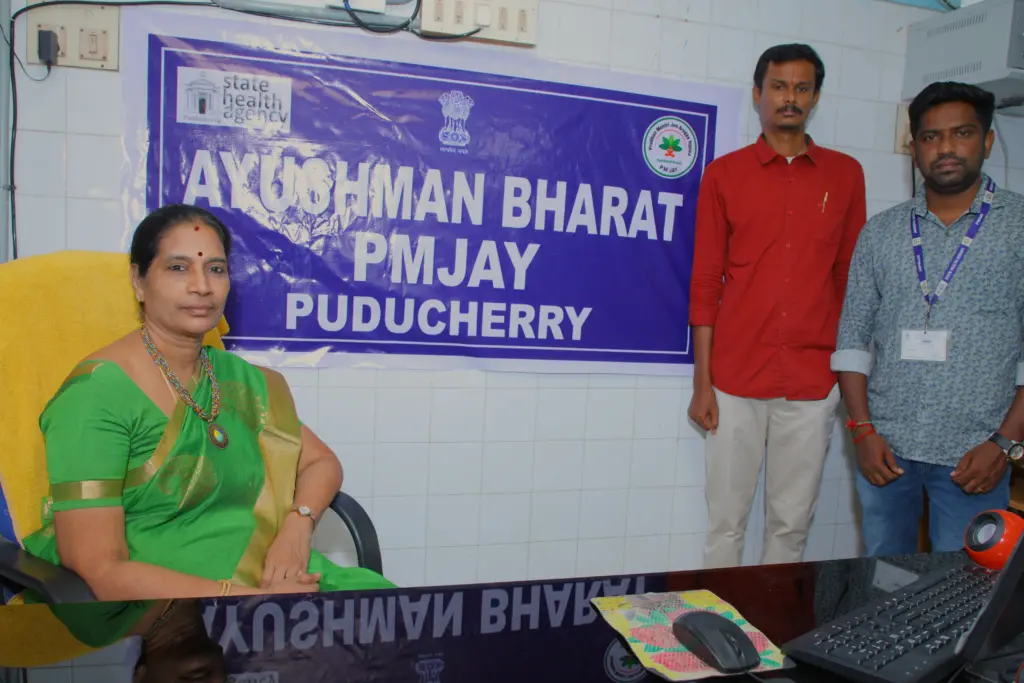Overview
The Challenge
Health is a human right. Yet nearly half the world’s population currently does not have full coverage of essential health services and about 100 million people are pushed into extreme poverty (having to live on US$1.90 or less a day) each year due to healthcare expenditures.
Universal Health Coverage (UHC) is primarily based on the principle that every individual across the world should have access to quality essential health services without suffering financial hardship. UHC is firmly based on the WHO constitution of 1948 declaring health a fundamental human right and on the Health for All agenda set by the Alma Ata declaration in 1978.
Universal health coverage (UHC) means that all people and communities can use the promotive, preventive, curative, rehabilitative and palliative health services they need, of sufficient quality to be effective, while also ensuring that the use of these services does not expose the user to financial hardship’ (WHO, 2019).UHC is designed to safeguard access to health services and cover the costs of illness for all citizens in a given country, financed by the community.
Universal Health Coverage (UHC) is primarily based on the principle that every individual across the world should have access to quality essential health services without suffering financial hardship. UHC is firmly based on the WHO constitution of 1948 declaring health a fundamental human right and on the Health for All agenda set by the Alma Ata declaration in 1978.
Universal health coverage (UHC) means that all people and communities can use the promotive, preventive, curative, rehabilitative and palliative health services they need, of sufficient quality to be effective, while also ensuring that the use of these services does not expose the user to financial hardship’ (WHO, 2019).UHC is designed to safeguard access to health services and cover the costs of illness for all citizens in a given country, financed by the community.
the situation in india
Despite the economic growth and status as an emerging economy, the number of poor and vulnerable people in India remains high. A majority of the working population is employed in the informal sector. India currently spends only about 1.2% of its gross domestic product (GDP) on public health, which remains to be one of the lowest worldwide. Many people are pushed into poverty each year due to high out-of-pocket payments for health services. Tho
ugh there are several social health insurances on national- and state-level, these are not yet coordinated adequately, and they partially overlap; hence, their full potential is not being realized.

The Ayushman Bharat reform of the health sector, initiated in September 2018, has great potential and belongs to the most important social policy measures of the Indian government. The national health insurance under Ayushman Bharat, called PM-JAY, aims at insuring more than 100 million families in all of India, i.e. about half a billion insured persons. This lets PM-JAY stand out as the world’s largest completely government funded health insurance scheme. Every family is entitled to utilize inpatient health services in public and empanelled private hospitals for up to INR 500,000 (ca. EUR 6,300) per year. The Ayushman Bharat reform also includes the establishment of 150,000 Health and Wellness Centres, which are meant to provide primary healthcare and to facilitate referral for secondary or tertiary healthcare in the long run. This signals that the Indian government strongly promotes the transition towards a comprehensive health insurance and the supply of health services to economically and socially disadvantaged Indian families.
project approach
Despite impressive progress, a lot of effort is still needed to move closer to the goal of Universal Health Coverage (UHC). The project aims to be able to help in improving the conditions for achieving UHC in India in terms of quality, scope and availability of health services.
IGUHC is giving technical advise to the MoHFW, the National Health Authority (NHA) and other stakeholders on a national level on the further development of PM-JAY with a view of achieving UHC, improving health services and linking PM-JAY with other health insurance schemes. The programme is assisting its partners in improving the scheme’s strategic orientation towards UHC. It also encourages convergence of existing insurance schemes, especially at state-level, under the flagship of PM-JAY as well as an integration of primary, secondary and tertiary levels of health care within a continuum of care.
IGUHC is giving technical advise to the MoHFW, the National Health Authority (NHA) and other stakeholders on a national level on the further development of PM-JAY with a view of achieving UHC, improving health services and linking PM-JAY with other health insurance schemes. The programme is assisting its partners in improving the scheme’s strategic orientation towards UHC. It also encourages convergence of existing insurance schemes, especially at state-level, under the flagship of PM-JAY as well as an integration of primary, secondary and tertiary levels of health care within a continuum of care.

